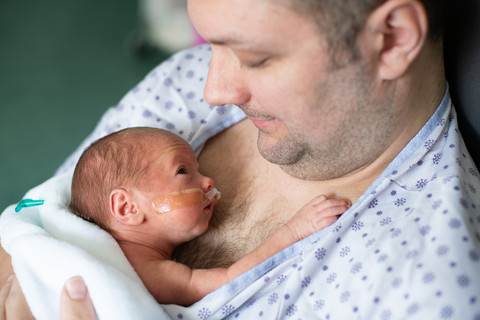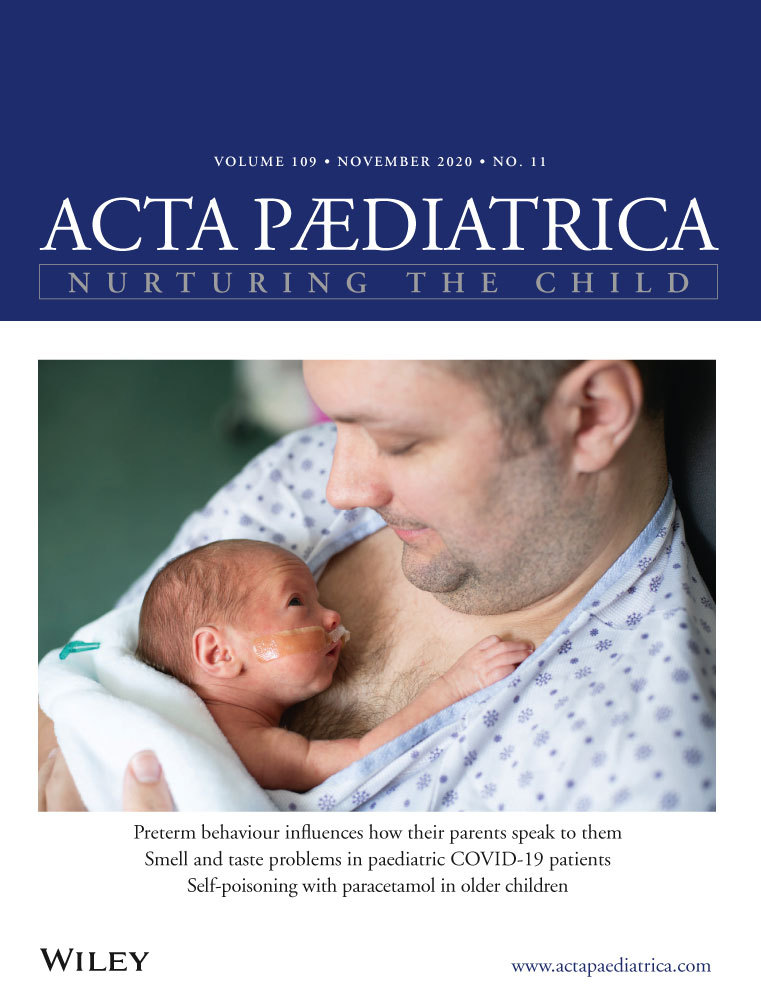Changes in the vocal qualities of mothers and fathers are related to preterm infant's behavioural states
Abstract
Aim
Little is known about infant-directed speech addressed to preterm infants. The current study investigated the association between changes in preterm infant behavioural states and acoustical qualities of both maternal and paternal infant-directed speech.
Methods
The mothers and fathers of 11 preterm infants participated in the study. Parents in turn were asked to talk freely to their infant over a 5-minute period. A total of 72 audio sequences were selected and analysed as a function of the behavioural states.
Results
Acoustic analysis showed that the vocal qualities of both fathers' and mothers' speech were influenced by infant behaviour. Parental infant-directed speech was characterised by higher loudness and spectral related parameters when preterm infants were sleeping, or transiting from one state to another, than when they were awake. Furthermore, loudness and spectral flux were higher in maternal speech than in paternal speech and fathers used higher pitch, jitter and shimmer when they saw their preterm infant in an awake state, demonstrating that alertness in infants modulates the father's voice.
Conclusion
More research is needed to know whether other social partners' vocal qualities may also be related to infant behavioural state as such findings would have implications for clinical practice.
Graphical Abstract
CONFLICT OF INTEREST
The authors have no conflicts of interest to declare.





